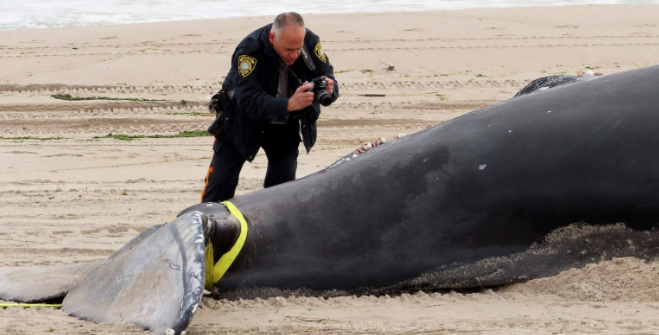||| FROM ABC NEWS |||
There’s been a common sight on Northeast beaches this summer: an alarming rise in whale carcasses washing in from the Atlantic Ocean.
Scientists are becoming increasingly concerned over the number of dead whales, an animal that provides a lens into the general condition of the ocean and the beings that reside there, Chris Robbins, associate director of science for Ocean Conservancy, an environmental nonprofit, told ABC News.
“They’re like the marine equivalent of the canary in the coal mine in that they’re giving us insights into the health of the broader marine ecosystem by how they respond to various drivers and threats of the ocean,” Robbins said.
Whale strandings in the Northeast are not new. But the uptick in deaths in recent decades, which has increased exponentially, are concerning the marine science community, experts said.
In the 1980s and 1990s, the Northeast would see just one dead whale wash ashore, Robert DiGiovanni, the director of the Atlantic Marine Conservation Society, told ABC News.

That began to change in 2001, when larger whale stranding events were recorded in the spring and winter, or the migratory periods, DiGiovanni said.
Since 2016, 208 whale strandings have occurred on Atlantic coasts from Maine to Florida, records kept by the National Oceanic and Atmospheric Administration show. More than a third of those deaths — 72– have occurred in New York, mostly on Long Island and the Rockaways.
There has been an especially significant uptick in whale mortality since 2017, which saw the beginning of several unusual mortality events, Robbins said. More than 90 whales died in U.S. waters in 2017 and 80 in 2018, compared to 55 deaths in 2007, according to NOAA.
**If you are reading theOrcasonian for free, thank your fellow islanders. If you would like to support theOrcasonian CLICK HERE to set your modestly-priced, voluntary subscription. Otherwise, no worries; we’re happy to share with you.**







